Reviewing books is, at its easiest, daunting. While I’ve been writing professionally for the better part of a decade now, I don’t always feel qualified to critique the work of others. And that’s the problem facing me right now. Steve Ramirez’s new book Casting Forward is the freshest collection of fishing stories I’ve read in years. The writing is both tight and flowing — much like the rivers in his beloved Texas Hill Country that Ramirez so tangibly describes.
I suppose that’s the hallmark of good writing, though. It speaks for itself, and there’s little else for me to add.
Forward tells the story of Ramirez, an ex-Marine with PTSD and the same employment troubles that seem to plague many of our former servicemen and women.
“When I lost my job, I went fishing,” is the book’s opening line. “After years of putting my passion and my spirit into ‘my work,’ I had lost not only a job but also faith: in my government, in the myth of hard work and good outcomes, and, perhaps, in the voice of any god. This was, in fact, the third time in my life that I had done everything right only to have changing budgets and changing ‘leadership’ lay it all to waste and leave me standing alone, wondering what was next and searching for meaning.”
Ramirez goes fishing through the Texas Hill Country, the swath of the state north of San Antonio and west of Austin. It’s an astounding fishery, made even more so by Ramirez’s almost reverential descriptions of the waters he sought for healing. I’ve known of fly fishing on the Guadalupe River, and I have a friend in Houston who regularly catches big largemouth on the fly, but I never expected such a wealth of diverse, wonderful, freestone streams and fisheries in Texas. And contrary to most anglers’ habits, Ramirez tells you exactly where he’s fishing, when, and gives directions to boot. If you wanted, you could use Forward as a detailed fishing guide to the Texas Hill Country.
More Like This
“The Sabinal is seventy-two miles from my house,” Ramirez writes. “My drive toward the canyon takes me through the one-stoplight town of Pipe Creek, through Bandera and Medina where I will cross the Medina River several times, and up over the very steep pass to Vanderpool, which consists of a post office and a graveyard.”
That kind of detail is more useful than anything you’ll get from your GPS. Ramirez’s writing reveals the character of the land he fishes, which we see is just as important to him as the fishing itself.
Ramirez isn’t alone on his journey, either. Along for the ride is his daughter Megan, who is experiencing similar life crises, albeit at the more malleable age of 21.
“While I find myself looking at a lifetime that almost seems to belong to another being ... [Megan] finds herself like so many thoughtful young people in these times wondering what path to take?”
The stories of the time shared between father and daughter are genuine. Ramirez isn’t trying to make a statement by bringing his daughter fishing. Rather, he’s simply happy that it’s Megan herself who is there, grounding him against the anxiety of what’s coming next.
Anxiety — and depression, and all other baggage that comes with PTSD — is discussed thoughtfully throughout the book. Before leaving the Marines, Ramirez had his share of trauma-inducing experiences. He says early on that “When I was twenty-three, I wasn’t going to frat parties; instead, I was carrying an Uzi and a pistol with a top-secret security clearance. My best friend was killed in Lebanon, and others had died along the way ... ”
That passage is juxtaposed with Ramirez’s account of fishing the Pedernales River, and it’s this juxtaposition that makes the book truly unique. Sandwiching war stories alongside reflective paragraphs about the intricacies of fishing for bass in a river isn’t an easy literary task, but it’s one that Ramirez accomplishes with aplomb. His view on fly fishing, and how interacting with nature through the sport offers healing to so many, is delivered through a raw and unfiltered view that I daresay we haven’t heard enough of.
Finally, this book is about the need to protect and preserve these wild places. Ramirez speaks so lovingly of his Hill Country, and isn’t afraid to discuss the tough topics that are directly harming wildlife and nature. As he writes in one chapter, the Florida Everglades “have been destroyed by unchecked overpopulation and development.”
While the entire book functions as an ode to wilderness, and a fervent plea to ensure its continued existence, Ramirez’s most powerful argument in favor of preserving wilderness is in the prologue.
“This is a story of a historical landscape. It is a memoir of a living, breathing place where the footprints of dinosaurs, conquistadors, Comanches, and I have mingled just beneath the clear waters ... This is a cry for my beloved ... Texas Hill County. It has survived eons with and without human hands. If we do not act now as a state, as a nation, and as a people, it will soon survive only in memory and through these few humble words.”
If those words can’t move even the slickest of city dwellers to the plight of preserving and protecting America’s wild places, I’m not sure what will.
Forward is a book that will force you to think. Whether about your own convictions on life, or on the way you interact with nature through fishing, you’ll finish each chapter with a great deal on your mind. And that is, perhaps, another hallmark of good writing. It sticks with you long after you’ve finished reading it.




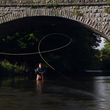
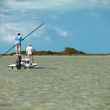

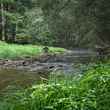
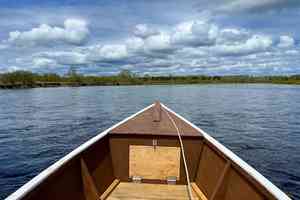


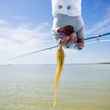
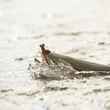
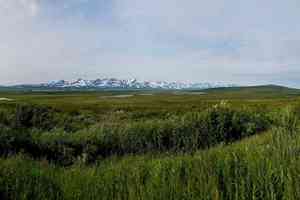

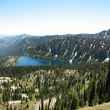
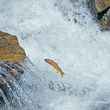
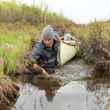



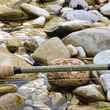
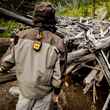



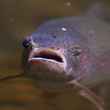
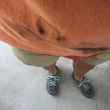
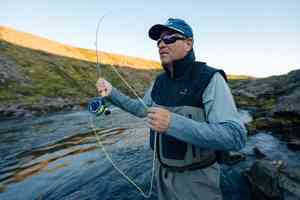



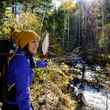
Comments